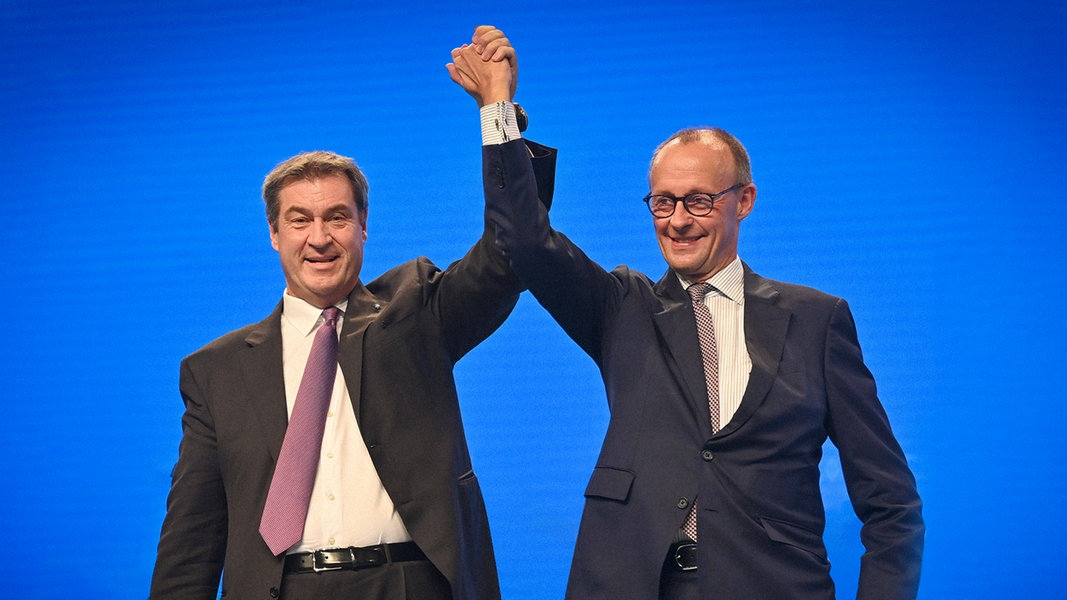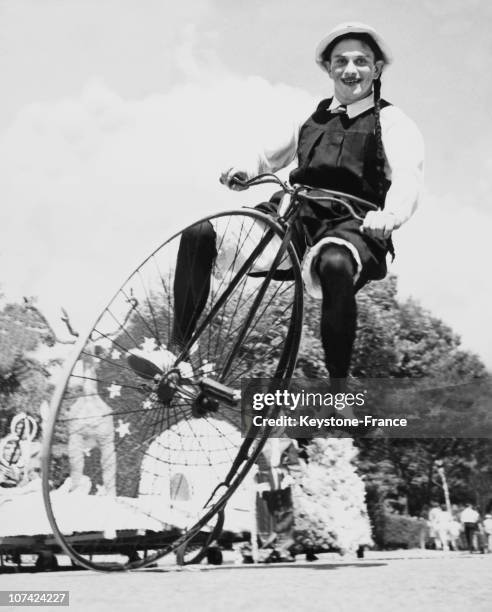Macron Vs. Merz: Lessons On Handling The Far Right

Table of Contents
Macron's Approach: Confrontation and Liberal Reform
Macron's strategy against the far-right has been characterized by a combination of direct confrontation and a commitment to liberal reforms aimed at addressing the underlying socioeconomic grievances that fuel populist movements.
Direct Confrontation:
Macron directly challenged the far-right's narrative, often employing strong rhetoric and refusing to compromise on core liberal values.
- Examples: His strong stance against anti-immigration policies, his unwavering defense of secularism (laïcité), and his direct engagement in televised debates with far-right candidates like Marine Le Pen, showcasing a willingness to publicly debate and dismantle their arguments.
- Advantages: This approach can rally centrist and left-leaning voters who are wary of far-right extremism, solidifying support among those who value liberal democracy. It also effectively frames the far-right as outside the mainstream political discourse.
- Disadvantages: Risks alienating moderate voters who might be sympathetic to some far-right concerns (e.g., on immigration or security) and may be perceived as overly aggressive or dismissive of legitimate anxieties. This can inadvertently push some voters further towards the extremes.
Emphasis on Economic Reform and Social Justice:
Macron attempted to address underlying socioeconomic grievances that fuel far-right populism through reforms aimed at improving living standards and social mobility.
- Examples: Initiatives to reduce unemployment, particularly youth unemployment, improve education and job training, and invest in infrastructure projects across France. His focus on economic modernization and competitiveness also aimed to create opportunities and alleviate economic anxieties that can be exploited by populist movements.
- Advantages: Demonstrates that progressive policies can be effective in countering populist narratives by showing a commitment to improving the lives of ordinary citizens and addressing their concerns directly.
- Disadvantages: Reforms often take time to yield results, potentially leaving voters vulnerable to far-right messaging in the interim. The perceived elitism associated with Macron's background and style has also hampered the effectiveness of these initiatives in reaching certain segments of the population.
Merz's Approach: Co-option and Moderate Conservatism
Merz, leading the CDU/CSU, adopted a different approach, focusing on co-opting center-right voters and combating misinformation.
Appealing to Center-Right Voters:
Merz focused on attracting voters disillusioned with the traditional center-right CDU/CSU, addressing concerns about immigration and security within a more moderate framework.
- Examples: Tougher stances on crime and immigration while emphasizing economic responsibility and social conservatism. This involved attempts to present a more robust and decisive image on issues where the far-right had gained traction.
- Advantages: May win back voters who had drifted towards the far-right due to perceived failures of mainstream conservative parties to address their concerns adequately. This strategy aimed to reclaim the political center ground.
- Disadvantages: Risks being seen as too accommodating to far-right views, potentially legitimizing their rhetoric and unintentionally normalizing extremist positions. This fine line between engagement and appeasement is a significant challenge.
Combating Misinformation and Promoting Civic Engagement:
Merz emphasized fact-checking and countering misinformation campaigns from far-right actors, while emphasizing the importance of civic participation.
- Examples: Support for initiatives combating fake news, promoting media literacy, and strengthening democratic institutions. This involved efforts to promote critical thinking and resist the spread of manipulative narratives.
- Advantages: Addresses the root cause of radicalization by fostering critical thinking and empowering citizens to identify and resist disinformation. This is a crucial long-term strategy.
- Disadvantages: Requires significant resources and commitment to implement effectively, and may not be effective in countering strongly entrenched prejudices or deeply held beliefs already established within specific communities.
Comparative Analysis: Strengths and Weaknesses of Each Approach
Macron's confrontational approach, while effective in limiting far-right electoral gains, risks alienating moderate voters. His success is partly linked to the French electoral system and the strong anti-Le Pen sentiment amongst many voters. Merz's strategy of co-option and combating misinformation is a longer-term strategy, with its effectiveness still to be fully determined. The German political landscape, with its multi-party system, presents different challenges compared to France's two-round system. Factors such as the media landscape, the strength of existing civil society organizations, and the specific nature of far-right movements in each country greatly influence the success of these different strategies.
Conclusion:
Both Macron and Merz faced the challenge of handling the far-right with varying degrees of success. Macron's confrontational approach, combined with a commitment to liberal reforms, has proven effective in limiting far-right electoral gains, but carries inherent risks of alienation. Merz's approach, focused on co-opting moderate voters and fighting disinformation, requires sustained effort and its long-term effectiveness remains to be seen. The optimal approach likely involves a nuanced combination of strategies tailored to the specific political and social context. Understanding the lessons learned from Macron and Merz is crucial for political leaders worldwide confronting the growing influence of far-right populism. Further study of Macron vs. Merz and their distinct strategies is vital for developing comprehensive and effective counter-extremism policies.

Featured Posts
-
 Europes Talent Flight The Unintended Consequence Of Eu Policy
May 19, 2025
Europes Talent Flight The Unintended Consequence Of Eu Policy
May 19, 2025 -
 Cliffs Pavilion Cinderella Pantomime Rylan Clark To Star
May 19, 2025
Cliffs Pavilion Cinderella Pantomime Rylan Clark To Star
May 19, 2025 -
 Alwkalt Alwtnyt Llielam Tnql Qdas Alqyamt Mn Dyr Sydt Allwyzt
May 19, 2025
Alwkalt Alwtnyt Llielam Tnql Qdas Alqyamt Mn Dyr Sydt Allwyzt
May 19, 2025 -
 Morales Winning Streak Continues Another Bonus At Ufc Vegas 106
May 19, 2025
Morales Winning Streak Continues Another Bonus At Ufc Vegas 106
May 19, 2025 -
 Elderly British Tourist Causes Motorway Crash In France Wrong Way Driving
May 19, 2025
Elderly British Tourist Causes Motorway Crash In France Wrong Way Driving
May 19, 2025
Latest Posts
-
 Saving Jersey Battle Of Flowers One Mans Determination
May 19, 2025
Saving Jersey Battle Of Flowers One Mans Determination
May 19, 2025 -
 The Man Who Saved Jersey Battle Of Flowers
May 19, 2025
The Man Who Saved Jersey Battle Of Flowers
May 19, 2025 -
 Eurovision Song Contest 2026 Oernskoeldsvik Soeker Vaerdskap
May 19, 2025
Eurovision Song Contest 2026 Oernskoeldsvik Soeker Vaerdskap
May 19, 2025 -
 Dublin Concert Marcus And Martinus Announce The Academy Show
May 19, 2025
Dublin Concert Marcus And Martinus Announce The Academy Show
May 19, 2025 -
 Sverige Oernskoeldsvik I Eurovision Kampen 2026
May 19, 2025
Sverige Oernskoeldsvik I Eurovision Kampen 2026
May 19, 2025
